Treating Bad Breath
Bad Breath is a real health and social problem especially nowadays when people will be judged at school or at the office if they emit any kind of unpleasant odor, even if they simply have no control over it. Also called halitosis, this problem is experienced by the vast majority of people at least at some point in their life time. The bad breath is caused by the bacteria that lives inside the oral cavity, feeding on nutrients on the tongue, gum or stuck between teeth. These micro organism will unleash foul smelling gases as they consume these left over food particles, thus resulting in bad breath. Treating it is possible but it can sometimes be troublesome, depending on individual and what directly has an impact on the smell.
What Leads to Having Bad Breath
 The bad breath in the morning when waking up is probably most common form of this affliction. The reason this happens to all of us is because we lack saliva during the night as our body no longer focuses on producing it. Without this crucial element we have no way of trapping the gases which the bacteria are letting out, therefore the smell is far more potent and noticeable. Lack of hydration or breathing through the mouth when sick leads to the exact same problem, which is a lack of saliva. A dry mouth has no way of washing off some of the bacteria and the gas that comes from them is not halted by anything.
The bad breath in the morning when waking up is probably most common form of this affliction. The reason this happens to all of us is because we lack saliva during the night as our body no longer focuses on producing it. Without this crucial element we have no way of trapping the gases which the bacteria are letting out, therefore the smell is far more potent and noticeable. Lack of hydration or breathing through the mouth when sick leads to the exact same problem, which is a lack of saliva. A dry mouth has no way of washing off some of the bacteria and the gas that comes from them is not halted by anything.
Lifestyle and diet are the next culprits that cause bad breath. For example smoking is a lifestyle choice and this most certainly leads to having an unpleasant breath. The nicotine, tar and other compounds found in the cigarette will stick to the teeth and tissue, thus causing a bad smell constantly. Not only that but the hot air and smoke that is being inhaled will dry the mouth, which reduced the amount of saliva and makes the bad smell even more obvious.
The Cure
Preventing is easier than treating but either way, it is no easy task to change the bad breath as it requires a constant focus on hygiene, diet and lifestyle. Regularly brushing your teeth, cleaning the tongue, flossing and using anti-bacterial mouth wash will significantly improve the quality of your breath and prevent halitosis from being encountered.
Proper hydration and maintaining a healthy diet are also crucial. Drinking water will actually clean the mouth from the gases and supply the body with what it needs to create saliva. Eating vegetables such carrots or fruits like apples will clean and hydrate. The texture of these foods will actually help to scrub the food particles and the bacteria from the teeth.
Understanding bad breath is key when it comes to prevention. A proper hygiene, healthy lifestyle and proper diet will keep the bacteria at bay by killing it directly or by removing their food source, thus limiting their numbers.

 Subscribe Now
Subscribe Now

 So what causes bad breath in general? Bad breath may be caused by bacteria that bind to the surface of the proteins in the mouth. These bacteria then convert these protein molecules into sulfur gas, an organic compound that smells like a rotten egg. These sulfur gases are responsible for your bad breath. Zinc can decrease the concentration of sulfur gases so that you are left with fresh breath.
So what causes bad breath in general? Bad breath may be caused by bacteria that bind to the surface of the proteins in the mouth. These bacteria then convert these protein molecules into sulfur gas, an organic compound that smells like a rotten egg. These sulfur gases are responsible for your bad breath. Zinc can decrease the concentration of sulfur gases so that you are left with fresh breath.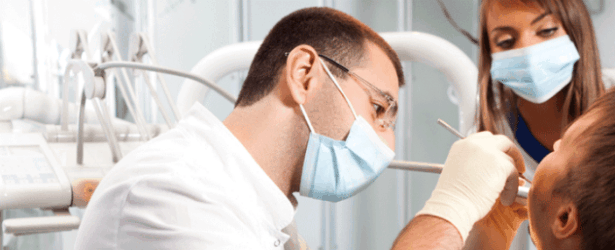

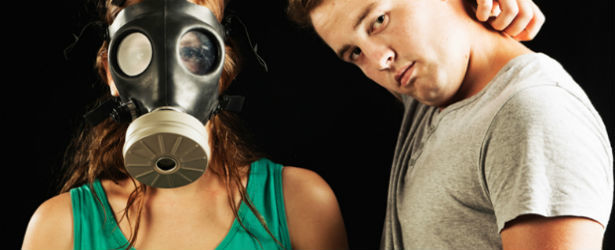
 The individual
The individual 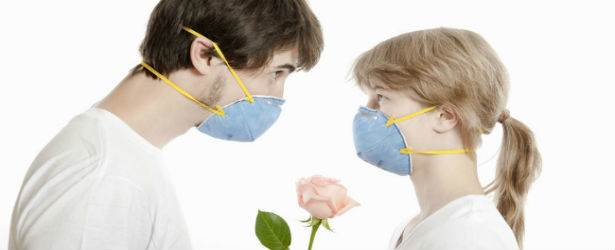
 Halitosis is the result of certain types of bacteria that emit foul smelling gases when consuming the nutrients found in food particles that remain in the person’s oral cavity. Diet and poor hygiene are the main reasons the bacteria multiplies out of control and certain foods and drinks will increase the severity of the smell.
Halitosis is the result of certain types of bacteria that emit foul smelling gases when consuming the nutrients found in food particles that remain in the person’s oral cavity. Diet and poor hygiene are the main reasons the bacteria multiplies out of control and certain foods and drinks will increase the severity of the smell.
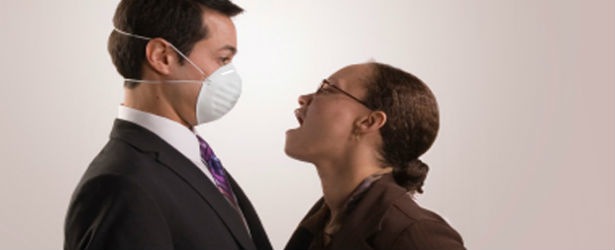
 The day starts with bad morning breath for everyone. This is the most common type of bad breath that is caused due to a lack of saliva in the mouth. The production of saliva is significantly reduced or even halted during the night. This leads to bacteria releasing the bad smelling gases without being stopped by anything as the saliva’s role is also to trap these noxious emissions coming from the bacteria. The exact same problem is encountered when not properly hydrated by drinking plenty of water on a regular basis. Anything that reduces the production of saliva will lead to a sour breath that is unpleasant.
The day starts with bad morning breath for everyone. This is the most common type of bad breath that is caused due to a lack of saliva in the mouth. The production of saliva is significantly reduced or even halted during the night. This leads to bacteria releasing the bad smelling gases without being stopped by anything as the saliva’s role is also to trap these noxious emissions coming from the bacteria. The exact same problem is encountered when not properly hydrated by drinking plenty of water on a regular basis. Anything that reduces the production of saliva will lead to a sour breath that is unpleasant.
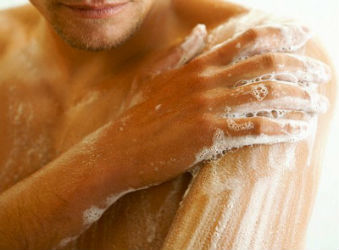 The body releases sweat in order to keep the body hydrated and at a optimal temperature levels. This process that is crucial to our health and normal functioning will cause a reaction with the bacteria which inhabits the surface of the skin, thus leading to body odor. There are ways of preventing the unpleasant smell from being noticed, such as taking regular showers and using a soap with anti-bacterial properties or using deodorants or other anti-perspiration products that will either reduce the amount of sweating or remove the bacteria that will cause the odor. In some cases, however, this is not enough as people with unbalanced diets can experienced a stronger odor or increased sweating that cannot be easily controlled. In such an event it has been scientifically proven that taking in more zinc from either dietary supplements or certain types of food can counteract and reduce the severity of the odor.
The body releases sweat in order to keep the body hydrated and at a optimal temperature levels. This process that is crucial to our health and normal functioning will cause a reaction with the bacteria which inhabits the surface of the skin, thus leading to body odor. There are ways of preventing the unpleasant smell from being noticed, such as taking regular showers and using a soap with anti-bacterial properties or using deodorants or other anti-perspiration products that will either reduce the amount of sweating or remove the bacteria that will cause the odor. In some cases, however, this is not enough as people with unbalanced diets can experienced a stronger odor or increased sweating that cannot be easily controlled. In such an event it has been scientifically proven that taking in more zinc from either dietary supplements or certain types of food can counteract and reduce the severity of the odor.